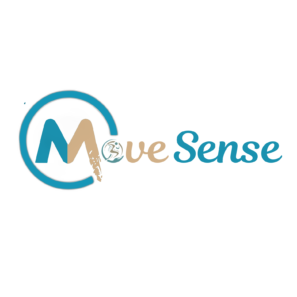Exercise Physiology
Exercise physiology is the scientific examination of how the body reacts to physical activity. Experts in this field design programs to foster positive changes in the metabolic, cardiovascular, neurological, and musculoskeletal systems.
With our clinical exercise expertise, we develop long-term movement solutions for chronic conditions.
Our primary focus is your functionality. We utilize movement and exercise to manage a range of chronic neurological, musculoskeletal, cardiovascular, metabolic, pediatric, and pain-related conditions.
How our Allied Health Professionals helps you at MoveSense?
At MoveSense, our Exercise Physiology team prioritizes you and your goals. We take the time to understand your unique conditions and preferences, enabling us to create a personalized program that treats you as an individual, not just your condition. We are committed to providing movement solutions that align with your needs, your body, and your lifestyle.
We take pride in utilizing the latest evidence-based techniques to ensure the best possible outcomes for each client.
At MoveSense, our exercise physiologists are supported by state-of-the-art facilities and a team of clinicians with diverse specializations. This ensures that we have the resources, equipment, and expertise to address your unique needs.
- Need Assistance?
(07) 5619-5588
Exercise physiology can benefit a wide range of conditions, including:
- Cardiovascular Diseases: Conditions like hypertension, heart disease, and chronic heart failure can improve with tailored exercise programs that enhance cardiovascular health and endurance.
- Metabolic Disorders: Conditions such as diabetes and obesity can be managed through exercise regimens that improve glucose metabolism and promote weight loss.
- Musculoskeletal Conditions: Issues like arthritis, osteoporosis, and back pain can benefit from exercise designed to improve strength, flexibility, and joint function.
- Neurological Disorders: Conditions such as stroke, Parkinson’s disease, and multiple sclerosis can see improvements in mobility, balance, and overall function through targeted exercise interventions.
- Respiratory Conditions: Chronic respiratory diseases like asthma and chronic obstructive pulmonary disease (COPD) can be managed with exercise that enhances lung function and endurance.
- Rehabilitation: Post-surgery or injury rehabilitation can be supported by exercise programs that aid in recovery and restore function.
- Pediatric Conditions: Exercise can help manage developmental and congenital conditions in children, improving motor skills and overall health.
- Pain Management: Conditions causing chronic pain, such as fibromyalgia, can benefit from exercise programs designed to reduce pain and improve quality of life.
Overall, exercise physiology helps improve health, function, and quality of life for individuals with various chronic conditions and health issues.

